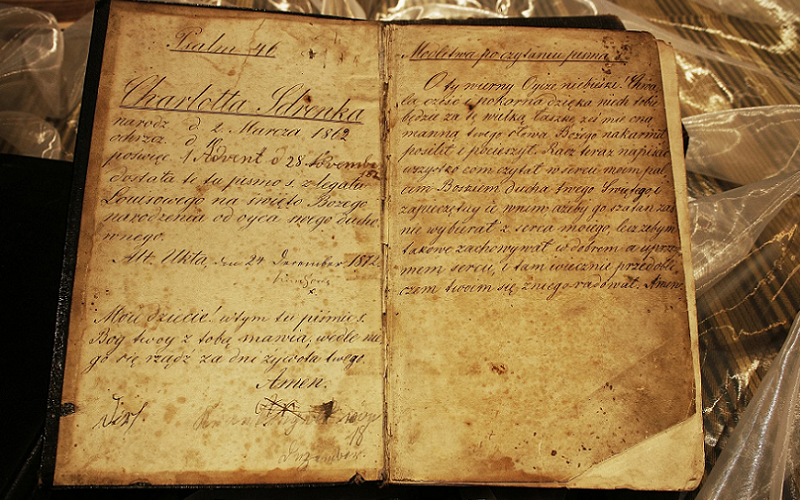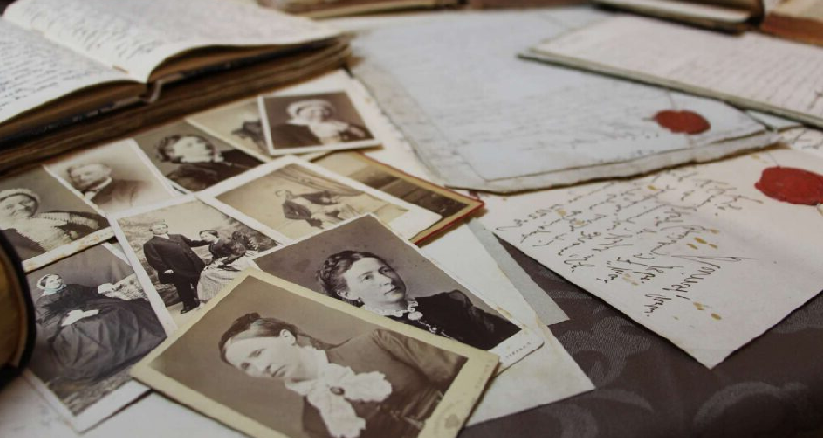
Genealogy is much more than a hobby; it’s a journey back through time, a quest to discover the roots that connect us to distant places and times. In today’s globalized world, many of us find that our ancestors hailed from a tapestry of countries, cultures, and continents. This rich, complex heritage means that to truly understand where we come from, we often need to cross borders—not just metaphorically, but also in the realm of research.
Contents
- Introduction to Genealogy
- Historical Context of Migration and Its Impact on Genealogical Research
- The Role of International Documents in Tracing Ancestry
- Overcoming Common Challenges in International Genealogical Research
- References
Introduction to Genealogy
Genealogy, the study of families, ancestors, and lineages, has fascinated people for centuries. It is an exploration that goes beyond mere curiosity, touching the very essence of our identity and connection to the past. Today, genealogy has evolved into a sophisticated discipline, aided by technology and the vast amount of resources available at our fingertips. Among these resources, international document search stands out as a pivotal element of genealogical research, especially for those whose ancestors have traversed borders.
Definition of Genealogy and Its Significance
Genealogy is not just a pursuit of a list of names and dates; it’s a window into the lives of those who came before us. It tells us not only who our ancestors were but also where they came from, how they lived, and the legacies they left behind. This pursuit is significant not just for understanding our personal history but for connecting with a broader human experience that transcends time and geography.
Overview of International Document Search
The search for international documents is a crucial aspect of genealogical research for anyone with ancestors who lived or moved abroad. These documents, which include birth certificates, marriage licenses, death notices, immigration records, and more, are essential for piecing together the puzzle of our past. However, this search often requires dealing with different languages, legal systems, and archival practices, making it a complex but rewarding endeavor.
Importance of Exploring Ancestral Roots Across Borders
In our interconnected world, understanding the migratory paths of our ancestors gives us a deeper appreciation of our own place in the global tapestry. It highlights the fluidity of human movement and the interconnectedness of societies throughout history. Exploring ancestral roots across borders not only enriches our understanding of our heritage but also fosters a greater sense of empathy and connection with people from other cultures and backgrounds. This exploration is a testament to the resilience, courage, and adaptability of our ancestors, whose journeys have shaped the course of our lives in ways we are only beginning to understand.
Historical Context of Migration and Its Impact on Genealogical Research
Human history is a story of movement and migration. People have always moved across landscapes, whether in search of new opportunities, fleeing conflicts or natural disasters, or driven by the desire for a better life. These migrations have played a pivotal role in shaping societies, cultures, and families. For genealogists, understanding these movements is crucial, as they often hold the key to unlocking ancestral stories and connections that span across different nations and continents.
Patterns of Global Migration Through the Ages
Migration is not a modern phenomenon but a constant feature of human history. From the earliest human migrations out of Africa to the great diasporas of the Classical and Medieval periods, and from the age of exploration and colonization to the mass movements of the 19th and 20th centuries, people have always been on the move. Each wave of migration was influenced by a variety of factors, including economic conditions, wars, political regimes, and environmental changes, leaving indelible marks on the genetic and cultural makeup of populations worldwide [1].
Challenges Posed by Historical Border Changes
One of the most significant challenges in tracing ancestry across borders is the ever-changing nature of those borders themselves. Countries have expanded, contracted, divided, and merged, with names and territories often changing as a result of political, social, and military upheavals. These changes can complicate genealogical research, as records that were once filed under one country’s jurisdiction may now be found in another. Understanding the historical context of these border changes is essential for accurately locating and interpreting ancestral records.
Case Studies: Significant Migration Waves and Their Genealogical Implications
Several key migration waves have had profound implications for genealogical research. For instance, the mass emigration from Europe to the Americas during the 19th and early 20th centuries reshaped entire communities and created new challenges and opportunities for genealogists. Similarly, the partition of countries and the creation of new nations, such as the division of India and Pakistan in 1947 or the breakup of the Soviet Union in 1991, have significant implications for tracking familial lines across shifting geopolitical landscapes. By examining specific case studies, genealogists can gain insights into the motivations, challenges, and experiences of their migrating ancestors, enriching their understanding of their family’s history.

The Role of International Documents in Tracing Ancestry
The pursuit of one’s lineage often leads to the doors of archives, libraries, and record offices across the world. International documents are the cornerstone of genealogical research, providing not only proof of existence but also a glimpse into the lives and stories of our ancestors. These records, which range from vital statistics to property deeds, are indispensable for anyone looking to construct an accurate and rich family history that crosses national boundaries.
Types of Vital Records and Their Significance
Vital records are the bedrock of genealogical research, offering concrete details about an individual’s life and familial connections.
Birth, Marriage, and Death Certificates
These documents are fundamental for establishing the basic timeline and relationships within a family tree. Birth certificates reveal the origins of an ancestor, including their parentage and birthplace. Marriage certificates can provide information about spousal relationships and sometimes even include details about the witnesses, who may be relatives. Death certificates are crucial for understanding an ancestor’s demise and can sometimes offer unexpected insights into their life, such as their occupation and cause of death [2].
Immigration and Naturalization Records
For those whose ancestors migrated across borders, these documents are invaluable. They can reveal when and where an ancestor entered a new country, their place of origin, and often their reason for migrating. These records sometimes include personal descriptions, names of family members, and even the ancestor’s signature.
Military and Land Records
These documents can provide context and detail about an ancestor’s life, including their service in foreign lands or acquisition and transfer of property. Military records may offer insights into an individual’s rank, regiment, and participation in specific battles, while land records can shed light on the economic status and movements of a family within a country or across borders.
Understanding the Language and Format of Foreign Documents
Dealing with documents from different countries can be challenging due to language barriers and varying formats. It’s crucial for genealogists to familiarize themselves with the official languages and document structures of the countries they’re researching. This might involve learning basic genealogical terms in another language or consulting with experts who can interpret old handwriting or dialects. Understanding these nuances can unlock the full potential of international records, revealing details that might otherwise be overlooked.
Strategies for Accessing Records Across Different Countries
Accessing international documents requires a strategic approach, as each country has its own policies and procedures for record keeping and availability.
Online Archives and Databases
Many countries have digitized their archives, making records accessible online. Genealogical databases and platforms specialize in aggregating these records, offering a starting point for research. However, the extent of available digital records varies widely between countries.
Collaborating with International Genealogical Societies
Genealogical societies often have local knowledge and resources that can be invaluable for navigating foreign records. They may offer guidance, translations, or even direct assistance in accessing hard-to-reach documents.
Hiring Professional Genealogists Abroad
In cases where documents are not digitized or are difficult to access due to language or legal barriers, hiring a local professional genealogist can be a worthwhile investment. They can provide on-the-ground support, from retrieving documents to navigating local administrative processes [3].
Overcoming Common Challenges in International Genealogical Research
Embarking on international genealogical research can be as daunting as it is exciting. The thrill of uncovering ancestral stories from different parts of the world comes with its unique set of challenges. From navigating non-digitized archives to overcoming language barriers, genealogists must be prepared to face and overcome these obstacles to unlock the secrets of their family history.
Dealing with Non-Digitized Records
In an age where digital access to information has become the norm, the reality that many historical records have not been digitized can be a significant hurdle. These documents, often housed in local archives or government offices, require more traditional methods of research.
Strategies for Access
One effective approach is to establish contact with local archives before your visit, whether through email, phone, or letter. Understanding their cataloging system, opening hours, and any potential access restrictions can save valuable time. For those unable to travel, hiring a local researcher or utilizing volunteer networks can provide access to these crucial resources.
Leveraging Technology
Even when dealing directly with physical documents, technology can be a powerful ally. Portable scanners and digital cameras allow researchers to capture and organize information efficiently. Transcription and translation apps can also assist in interpreting and recording findings on the spot.
Language differences pose a significant challenge in international genealogy, not just in accessing records but in interpreting them accurately.
Language Learning and Assistance
Basic familiarity with the language of your ancestors can make a significant difference. Online courses, language learning apps, and genealogical word lists can provide a foundation. For more complex documents, professional translation services or software can ensure accuracy in understanding the nuances of historical records.
Community and Professional Networks
Engaging with genealogical societies or forums that specialize in specific regions or languages can provide invaluable support. These communities often share translation resources, expertise, and sometimes even volunteer translation help [4].
Legal and Privacy Concerns in Accessing Documents
Legal restrictions and privacy laws vary significantly from country to country, affecting access to certain types of records.
Understanding Legal Frameworks
It’s crucial to research the specific legal context of the country you’re investigating. Some countries have strict privacy laws that restrict access to records less than 100 years old, while others may have different limitations based on the type of record.
Ethical Considerations
Genealogists should also consider ethical implications, especially when dealing with sensitive information. Respecting the privacy and wishes of living relatives and communities is paramount, as is navigating the moral complexities of uncovering potentially distressing ancestral histories.
References
[1] Tracing Ancestors In The Old Country: How To Start Your International Research
[2] Resources for Genealogists
[3] NGS Recommends…Eighteen Important Free Websites for Genealogy Research
[4] Genealogical Research using State Department Records

